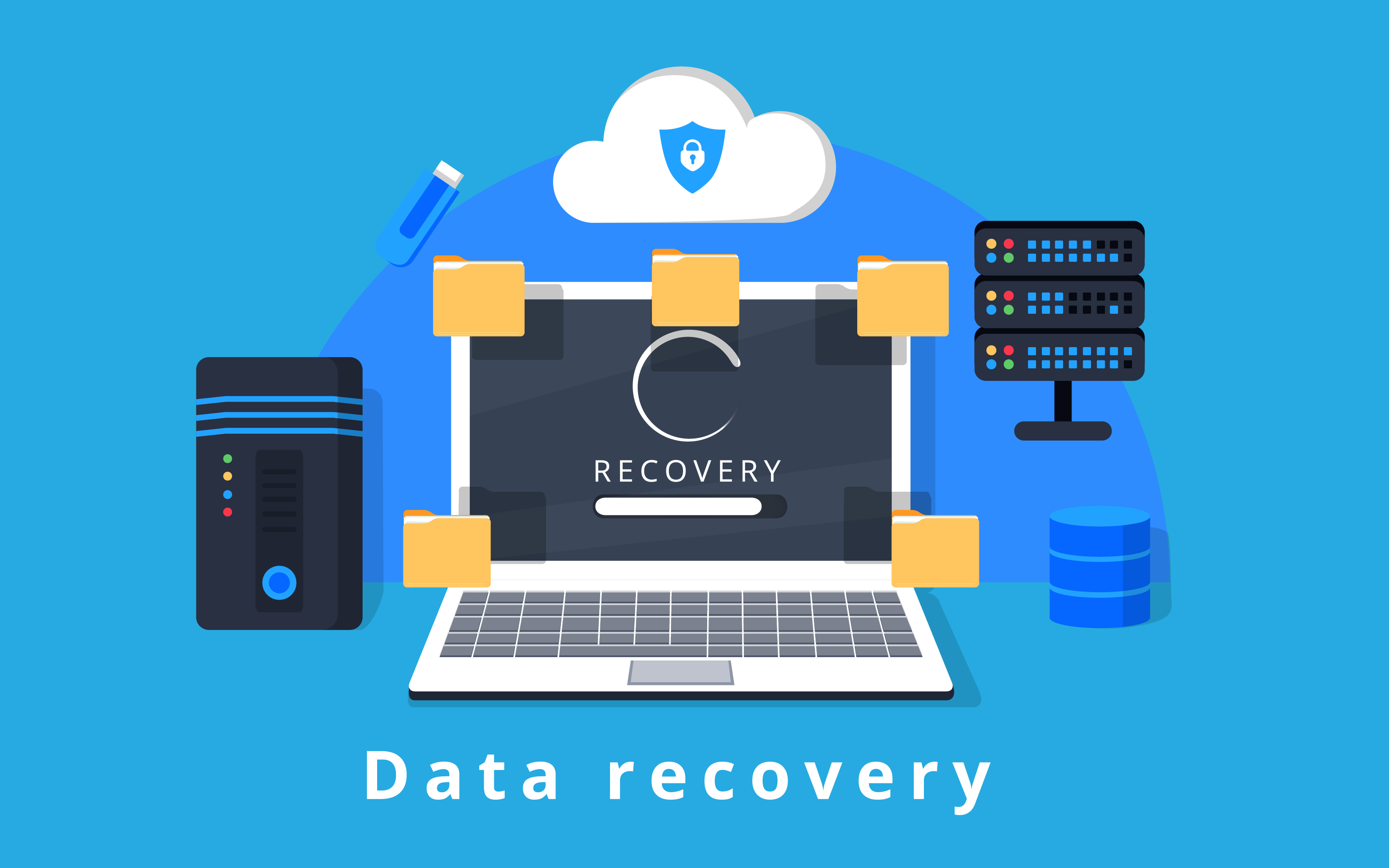You're confident your business data is protected. After all, you're paying for Microsoft 365: that means everything's backed up automatically, right?
If that's your assumption, you're not alone. The vast majority of Connecticut businesses operate under this dangerous misconception, believing Microsoft handles their data protection while they focus on running their company. But here's the wake-up call: Microsoft 365 doesn't fully back up your data, and this false sense of security has already cost countless organizations their most critical information.
The stakes couldn't be higher. When ransomware hits, when employees accidentally delete files, or when a disgruntled worker sabotages your systems, you'll discover the hard truth: Microsoft's default protection expires after just 30 days. Everything before that? Gone forever.
This isn't just about inconvenience or productivity loss. For Connecticut businesses handling healthcare records, legal documents, or financial data, backup failures can trigger compliance violations, regulatory fines, and reputation damage that takes years to recover from.
The Dangerous Myth That's Putting Your Business at Risk
"Microsoft 365 Backs Up Everything Automatically"
This is the biggest lie businesses tell themselves about their data protection. Microsoft 365 provides basic retention policies and recycle bin functionality, but these features fall catastrophically short when disaster strikes.
Think of it this way: if someone steals your laptop, you don't expect the thief to keep it safe and return it in perfect condition. Yet that's essentially what businesses assume about their cloud data: that someone else will handle the protection without any additional effort on their part.
Microsoft's Shared Responsibility Model makes this crystal clear: they're responsible for the infrastructure, but you're responsible for your data. That includes backing it up, protecting it from threats, and ensuring you can recover it when needed.

Human Error Happens More Than You Think
Every day, employees across Connecticut accidentally delete important files, remove entire folders, or overwrite critical documents. In a traditional office environment, your IT person might be able to recover these files from a local backup. But in the cloud, those safety nets often don't exist.
Here's what actually happens when someone deletes a file in Microsoft 365:
- It goes to the recycle bin for 30 days
- After 30 days, it moves to a second-stage recycle bin for another 93 days (but only if you have the right licenses)
- After that? It's permanently deleted. Forever.
No amount of money, no Microsoft support ticket, no data recovery service can bring it back.
Cyber Threats Are Evolving Faster Than Default Protections
Ransomware attacks specifically target Microsoft 365 environments because attackers know most businesses rely solely on Microsoft's basic protections. These criminals understand the 30-day deletion window better than most business owners do.
Modern ransomware doesn't just encrypt your files: it deletes your data, corrupts your backups, and specifically targets cloud storage. If your only protection is Microsoft's built-in features, you're essentially defenseless against these sophisticated attacks.
What Successful Businesses Do Differently
They Follow the 3-2-1 Backup Rule
The most resilient organizations maintain three copies of their data: the original, plus two backups stored in different locations on different types of media. One of those copies lives completely offline, unreachable by ransomware or malicious insiders.
This isn't overkill: it's insurance. When your business depends on data to serve customers, meet deadlines, and maintain operations, a single point of failure becomes an existential threat.
They Use Dedicated Backup Solutions
Smart Connecticut businesses deploy specialized Microsoft 365 backup tools that go far beyond what Microsoft provides. These solutions offer:
- Point-in-time recovery that lets you restore data from any moment in the past
- Unlimited retention periods instead of Microsoft's limited timeframes
- Advanced encryption that keeps your data secure both in transit and at rest
- Granular recovery options that let you restore individual emails, files, or entire mailboxes
- Protection against insider threats and administrative errors

They Automate Everything
Manual backups fail because humans forget, get busy, or make mistakes. Successful organizations set up automated backup schedules that run consistently without human intervention.
The best backup systems run incremental backups throughout the day, capturing changes as they happen rather than waiting for a scheduled full backup that might miss critical updates.
They Test Their Restores Religiously
Here's the sobering truth: a backup you can't restore is worthless. Yet most businesses never test their recovery processes until an emergency forces their hand.
Companies that survive major data loss incidents are those that regularly verify their backups work. They run quarterly restore tests, document their recovery procedures, and train their staff on how to execute emergency protocols.
The Hidden Compliance Dangers
HIPAA Requirements Are Getting Stricter
Connecticut healthcare practices face particularly severe risks. HIPAA compliance requires that you maintain adequate data backups and be able to restore patient information quickly when needed.
If a breach occurs and you can't demonstrate proper backup procedures, you're looking at potential fines ranging from $100 to $50,000 per violation. For a data breach affecting hundreds or thousands of patient records, these penalties can quickly reach millions of dollars.
Legal and Financial Record Retention
Law firms, accounting practices, and financial services companies must retain documents for specific periods mandated by state and federal regulations. If your backup strategy can't guarantee data availability for these required timeframes, you're violating compliance requirements even if no data loss occurs.
The Connecticut Department of Banking, for instance, requires financial institutions to maintain specific records for up to seven years. If your Microsoft 365 backup strategy only retains data for 90 days, you're already in violation.
Industry-Specific Data Protection Standards
Different industries have different requirements:
- Healthcare: HIPAA and HITECH Act compliance
- Financial services: SOX, GLBA, and state banking regulations
- Legal: Connecticut Rules of Professional Conduct regarding client confidentiality
- Manufacturing: ITAR for defense contractors or FDA regulations for medical devices
Each of these frameworks has specific backup and recovery requirements that Microsoft's default protection simply cannot meet.
Building Your Bulletproof Backup Strategy
Step 1: Audit Your Current Protection
Before implementing any changes, you need to understand exactly what you have now. Most Connecticut businesses discover significant gaps when they honestly assess their current backup situation.
Ask yourself these critical questions:
- How long does Microsoft retain deleted data in your specific license tier?
- Can you restore a file that was deleted 6 months ago?
- What happens if a ransomware attack encrypts your OneDrive files?
- How quickly can you restore an entire user's mailbox?
- Do you have any protection against administrative errors?
If you can't answer these questions confidently, your business is already at risk.

Step 2: Implement Automated Third-Party Backup
Choose a backup solution that specifically supports Microsoft 365 environments and offers:
- Unlimited retention periods so you're never forced to delete data before you're ready
- AES-256 encryption with customer-managed keys that keep your data secure
- Automated incremental backups that capture changes throughout the day
- Granular recovery options for individual files, emails, or entire accounts
- Compliance certifications that match your industry requirements
Look for providers that offer SOC 2 Type II, ISO 27001, HIPAA, and GDPR compliance to ensure they meet the strictest security standards.
Step 3: Create and Document Recovery Procedures
Your backup is only as good as your ability to use it. Develop detailed, step-by-step recovery procedures for common scenarios:
- Individual file recovery
- Complete mailbox restoration
- Site-wide data recovery after a ransomware attack
- Compliance-driven data retrieval for legal or regulatory requests
Document these procedures in a location that remains accessible even if your primary systems are compromised. Consider keeping physical copies or storing procedures in a completely separate system.
Step 4: Establish Regular Testing Protocols
Set up a quarterly testing schedule that includes:
- Individual file restores to verify day-to-day recovery capabilities
- Complete user account restores to test larger-scale recovery procedures
- Disaster simulation exercises that test your ability to restore operations after a major incident
- Compliance testing to verify you can meet regulatory data retrieval requirements
Step 5: Monitor and Maintain
Backup isn't a set-it-and-forget-it solution. Establish ongoing monitoring that tracks:
- Backup success rates and identifies any failures immediately
- Storage usage trends to predict capacity needs
- Security alerts that might indicate attempted breaches
- Performance metrics to ensure backup and recovery times meet business requirements
The Real Cost of Inadequate Backup
Operational Downtime
When critical data becomes unavailable, operations grind to a halt. Employees can't access the files they need, customers can't get service, and revenue stops flowing. For Connecticut businesses, every hour of downtime can cost thousands of dollars in lost productivity and missed opportunities.
Regulatory Penalties
Compliance violations can result in fines that dwarf the cost of proper backup solutions. Healthcare practices face HIPAA penalties, financial firms deal with banking regulation violations, and legal practices risk professional conduct sanctions.
Reputation Damage
News travels fast when a local business suffers a major data loss. Customer confidence erodes, prospects look elsewhere, and rebuilding trust takes years of consistent performance.
Competitive Disadvantage
While your business struggles to recover lost data, your competitors continue serving customers and growing their market share. The window of opportunity to recover lost ground shrinks every day operations remain disrupted.
Taking Action Today
The time to implement proper Microsoft 365 backup protection is before you need it. Waiting until after a disaster strikes is like trying to buy fire insurance while your building burns down: it's too late to help.
Start with a comprehensive assessment of your current data protection strategy. Identify the gaps between what you have and what you need. Then prioritize implementing automated, tested backup solutions that can actually protect your business when disaster strikes.
Remember: your data is your business. Customer records, financial information, operational documents, and communication history represent years of work and millions of dollars in value. Protecting that investment isn't optional: it's essential for survival.
The question isn't whether you can afford to implement proper backup protection. The question is whether you can afford not to. Because when the next ransomware attack hits, when the next employee accidentally deletes critical files, or when the next system failure occurs, the only thing standing between your business and catastrophe will be the backup strategy you implement today.
Don't wait for disaster to strike. The 82% of Connecticut businesses that get Microsoft 365 backup wrong don't plan to fail: they simply fail to plan. Make sure your business isn't among them.
Want to ensure your Microsoft 365 data is properly protected? Contact FoxPowerIT today for a comprehensive backup assessment and discover exactly where your current strategy falls short( before it's too late.)

